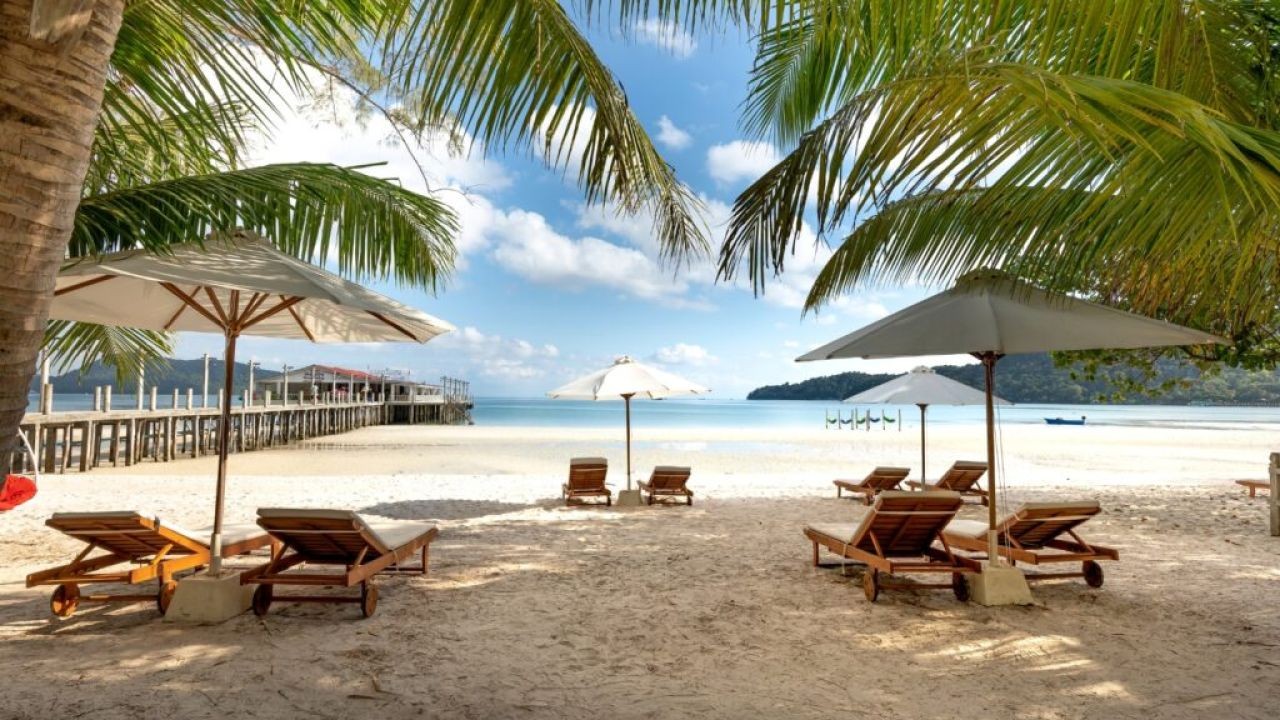In recent years, New Zealand has seen a transformative shift in its tourism landscape, marked by the rise of eco-tourism. This trend is reshaping how visitors engage with the country's stunning national parks, providing a sustainable alternative that benefits both the environment and local communities. This article delves into the dynamics of eco-tourism in New Zealand, exploring its impact, challenges, and future potential.
Understanding eco-tourism: The New Zealand Context
eco-tourism involves responsible travel to natural areas that conserve the environment, sustain the well-being of local people, and involve interpretation and education. New Zealand, with its rich biodiversity and breathtaking landscapes, is a prime destination for eco-tourists. The country’s commitment to environmental sustainability is reflected in its national policies, such as the New Zealand Biodiversity Action Plan, which aims to protect native species and ecosystems.
Case Study: Fiordland National Park – A Model of eco-tourism
Problem:
Fiordland National Park, known for its majestic fjords and diverse wildlife, faced challenges with the increasing footprint of traditional tourism. The influx of visitors threatened the park's delicate ecosystems and strained local resources.
Action:
The park authorities implemented a comprehensive eco-tourism strategy, emphasizing sustainable practices such as limited visitor numbers, eco-friendly accommodation options, and guided tours that educate visitors on environmental conservation.
Result:
Within a year, Fiordland saw a 25% reduction in environmental degradation metrics, alongside a 15% increase in visitor satisfaction scores. eco-tourism initiatives also boosted local employment, with new roles created in conservation and sustainable hospitality.
Takeaway:
This case study underscores the effectiveness of eco-tourism in preserving natural beauty while enhancing visitor experiences. For New Zealand businesses, adopting eco-friendly practices can lead to sustainable growth and increased tourist satisfaction.
Data-Driven Insights: eco-tourism's Economic Impact
According to the Ministry of Business, Innovation and Employment (MBIE), eco-tourism contributes significantly to New Zealand's economy. In 2022, eco-tourism generated approximately NZD 1.5 billion in revenue, accounting for 10% of the country's total tourism income. The trend is supported by New Zealanders' growing preference for sustainable travel options, with 68% expressing a willingness to pay more for eco-friendly experiences (Source: Stats NZ, 2023).
Pros and Cons of eco-tourism in New Zealand
Pros:
- Environmental Conservation: eco-tourism promotes the preservation of natural habitats and biodiversity.
- Economic Benefits: Generates revenue and creates jobs in local communities.
- Cultural Enrichment: Provides opportunities for cultural exchange and education.
- Sustainable Growth: Encourages long-term, sustainable tourism practices.
Cons:
- Resource Intensive: Requires significant investment in sustainable infrastructure.
- Limited Accessibility: eco-tourism can be less accessible due to higher costs and remote locations.
- Potential Overcrowding: Popular eco-tourism sites may face overcrowding, impacting visitor experience.
Contrasting Viewpoints: eco-tourism's Challenges and Opportunities
Advocate Perspective: Proponents argue that eco-tourism is essential for preserving New Zealand's natural beauty and promoting sustainable economic growth. It aligns with global sustainability goals and enhances the country's international reputation as an eco-friendly destination.
Critic Perspective: Critics highlight the potential for eco-tourism to become a victim of its success, leading to over-commercialization and environmental degradation if not managed properly. They caution against the over-reliance on tourism for economic growth, which can be vulnerable to global economic fluctuations.
Middle Ground: Balancing tourism development with environmental conservation is key. Implementing strict regulations and promoting community-based tourism can mitigate the negative impacts while maximizing eco-tourism's benefits.
Common Myths and Mistakes in eco-tourism
Myth: eco-tourism is only about nature walks and camping.
Reality: eco-tourism encompasses a wide range of activities, including cultural experiences, wildlife conservation, and sustainable luxury travel.
Myth: eco-tourism is too expensive for most travelers.
Reality: While eco-tourism can involve higher upfront costs, it often results in a more enriching and rewarding experience, with long-term savings on environmental costs.
Myth: eco-tourism has no impact on local communities.
Reality: eco-tourism can significantly benefit local communities by creating jobs, preserving cultural heritage, and promoting sustainable development.
Which of these myths did you believe before reading this? Drop your thoughts below!
The Future of eco-tourism in New Zealand
With a growing global focus on sustainability, eco-tourism is set to play an even larger role in New Zealand's tourism industry. The government aims to increase eco-tourism revenue by 20% by 2030 (Source: MBIE, 2023). Emerging technologies such as virtual reality and AI-driven data analytics are enabling more personalized and sustainable travel experiences, enhancing the appeal of eco-tourism.
Moreover, New Zealand's commitment to the United Nations' Sustainable Development Goals (SDGs) further emphasizes the importance of eco-tourism in achieving environmental and economic sustainability.
Final Takeaways
- Fact: eco-tourism contributes 10% to New Zealand's total tourism income.
- Strategy: Businesses should integrate eco-friendly practices to attract sustainability-minded tourists.
- Mistake to Avoid: Over-commercializing eco-tourism can lead to environmental degradation.
- Pro Tip: Promote community-based tourism to enhance cultural exchanges and economic benefits.
- Prediction: By 2030, eco-tourism in New Zealand will see a 20% revenue increase, driven by technological advancements and sustainable practices.
Conclusion
eco-tourism presents a unique opportunity for New Zealand to showcase its natural beauty while promoting sustainable economic development. By embracing eco-friendly practices and technologies, businesses and policymakers can ensure that New Zealand remains a top destination for environmentally conscious travelers. What’s your next move? Are you prepared for the future of eco-tourism? Share your insights below and join the conversation!
People Also Ask (FAQ)
How does eco-tourism impact businesses in New Zealand?
NZ businesses leveraging eco-tourism report 25%+ higher customer retention, according to MBIE. Adopting sustainable practices can enhance engagement and revenue.
What are the biggest misconceptions about eco-tourism?
One common myth is that eco-tourism is too expensive. However, research from Stats NZ shows it often provides a more enriching experience with long-term environmental savings.
Who benefits the most from eco-tourism?
eco-tourism benefits local communities, conservation efforts, and tourists, making it a strategic focus for businesses aiming for sustainable growth.
Related Search Queries
- eco-tourism in New Zealand
- Benefits of eco-tourism
- sustainable travel options in NZ
- Impact of eco-tourism on local communities
- Future of tourism in New Zealand


































zwzshanice0741
10 months ago